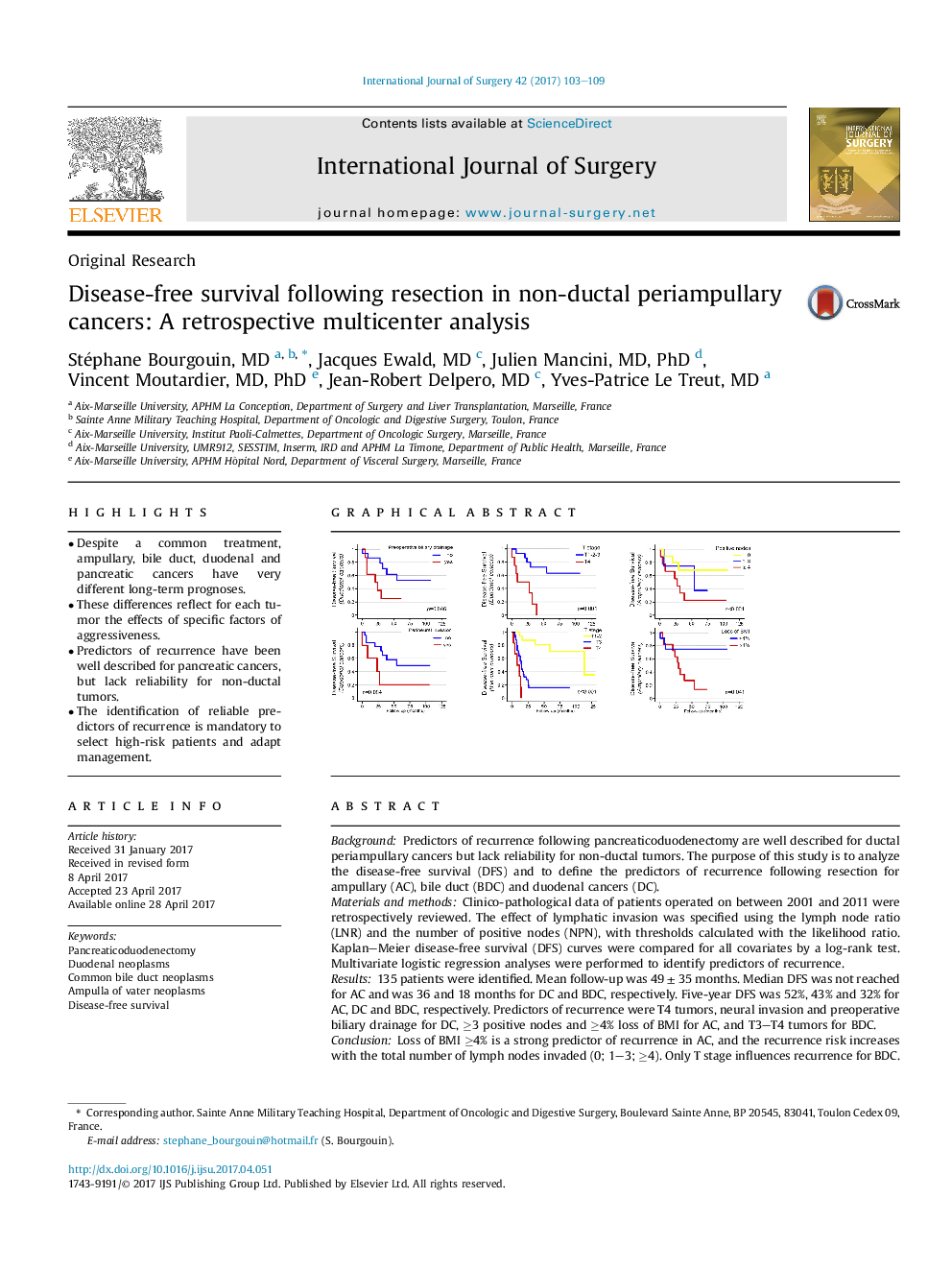| Article ID | Journal | Published Year | Pages | File Type |
|---|---|---|---|---|
| 5731739 | International Journal of Surgery | 2017 | 7 Pages |
â¢Despite a common treatment, ampullary, bile duct, duodenal and pancreatic cancers have very different long-term prognoses.â¢These differences reflect for each tumor the effects of specific factors of aggressiveness.â¢Predictors of recurrence have been well described for pancreatic cancers, but lack reliability for non-ductal tumors.â¢The identification of reliable predictors of recurrence is mandatory to select high-risk patients and adapt management.
BackgroundPredictors of recurrence following pancreaticoduodenectomy are well described for ductal periampullary cancers but lack reliability for non-ductal tumors. The purpose of this study is to analyze the disease-free survival (DFS) and to define the predictors of recurrence following resection for ampullary (AC), bile duct (BDC) and duodenal cancers (DC).Materials and methodsClinico-pathological data of patients operated on between 2001 and 2011 were retrospectively reviewed. The effect of lymphatic invasion was specified using the lymph node ratio (LNR) and the number of positive nodes (NPN), with thresholds calculated with the likelihood ratio. Kaplan-Meier disease-free survival (DFS) curves were compared for all covariates by a log-rank test. Multivariate logistic regression analyses were performed to identify predictors of recurrence.Results135 patients were identified. Mean follow-up was 49 ± 35 months. Median DFS was not reached for AC and was 36 and 18 months for DC and BDC, respectively. Five-year DFS was 52%, 43% and 32% for AC, DC and BDC, respectively. Predictors of recurrence were T4 tumors, neural invasion and preoperative biliary drainage for DC, â¥3 positive nodes and â¥4% loss of BMI for AC, and T3-T4 tumors for BDC.ConclusionLoss of BMI â¥4% is a strong predictor of recurrence in AC, and the recurrence risk increases with the total number of lymph nodes invaded (0; 1-3; â¥4). Only T stage influences recurrence for BDC. Considering DC, the adverse effect of preoperative biliary drainage should be validated in randomized series.
Graphical abstractDownload high-res image (279KB)Download full-size image
